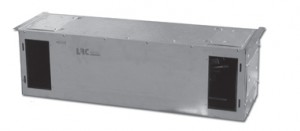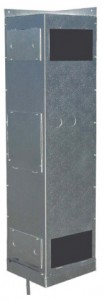“Wine makes every meal an occasion, every table more elegant, every day more civilized.” – Andre Simon, “Commonsense of Wine”
“A meal without wine is like a day without sunshine.” – Anthelme Brillat Savarin
How important or special to you is wine? How do you value wines? What do you do to protect your own collection of wines?
Wine is treated by many not just as a beverage but something that has been part of their lives, may it be in times of happiness or in times of sorrow. That is how important wine is for us here at US Cellars Systems – we treat them as precious possessions that can make a significant impact in a person’s life.
Preserving your wines, protecting them from the harmful effects of certain environmental factors and providing them the best storage conditions possible are some of the ways of pampering them, just like pampering your favorite pet.
So what can you do to provide nothing but the best for your wines?
There are actually different requirements for you to be able to preserve your wines and let them age to perfection. There’s lighting, temperature, humidity, insulation and a lot more.
The Right Lighting
Direct exposure to sunlight, UV light or incandescent light can lead to possible wine faults. In order to protect the wine from harmful rays, they are bottled in darkly tinted wine bottles. Another way of protecting your wine collection is by storing them in dark environments which can be provided by wine coolers, wine cabinets, and wine cellars. Wines are also stored in boxes or crates to shield them from direct light.
The Right Humidity
Humidity is responsible for keeping the cork from drying out. When the cork starts to dry out, it causes oxygen to seep through into the bottle which eventually leads to wine spoilage. Wine bottles should be stored in an environment that maintains a 70% humidity level which is considered to be ideal.
Excessive wine cellar humidity can contribute to mold growth. Although mildew will not affect the contents of the wine bottle, it can do considerable damage to the label. This should not be much of an issue unless you intend to resell your bottle of wine. Conversely, if the wine cellar humidity level is too low, it runs the risk of the cork drying out.
There are useful instruments that can help determine the level of humidity. A hygrometer or humidity sensor can provide an accurate reading of humidity in your storage environment.
One of the surest ways to maintain the ideal wine cellar humidity is with the use of a wine cellar cooling system, particularly the type which has a humidity control system.
The Right Temperature
The most important of all external factors in wine storage is temperature. Wine is easily influenced by fluctuations in temperature. Wine bottles should be stored in an environment that maintains a temperature within the 55 – 60°F range which is considered to be the ideal temperature for storing and aging.
If exposed to too high a temperature, it can hasten the aging process of the wine and even give your wine a ‘cooked’ flavor. If exposed to a wine cellar temperature that is too low, it can lead to a variety of wine faults one of which is stopping the aging process altogether.
Our wine cellar cooling systems come in different styles and specifications that can meet your wine storage requirements and most importantly, maintain the ideal wine cellar temperature.
Take a look at these products:
Rack Mounted Wine Cellar Refrigeration Units
Aside from the three aforementioned external influences, vibration and odor can also affect the overall condition of your wine.
Vibration is said to expedite the aging process along with stirring up the sediments at the bottom of the bottle creating the most adverse effects to your wine collection. Therefore it is highly recommended that you store your wines in areas free of vibratory motion.
Here at US Cellar Systems, we know that noise can produce vibration, and this inspired us to create virtually quiet wine cellar cooling units such as our Low Profile Quiet Wine Cellar Cooling Units.
Due to the porous nature of the cork, wine is susceptible to natural agents, particularly air, which is why making sure your storage area is free from strong smells is so important. Odor can also have damaging effects on those wine bottles that you have opened and resealed especially when placed in confined spaces with little ventilation. With this in mind, it is imperative that you store your wine collection in areas that is clear of food, chemical, and household odors.
The orientation of the bottle must also be taken into consideration when you talk about proper wine storage. Although there are certain wines that age better when kept upright, Champagnes and sparkling wines for instance, most wine bottles are stored on their side allowing the cork to stay moist as it maintains contact with the wine.
Take a look at our wine cellar cooling systems and tell us which one interests you the most and why.
Contact us here.






